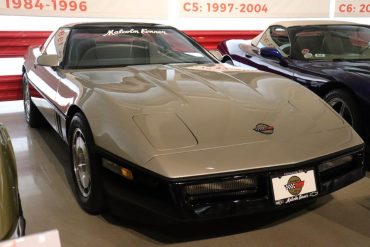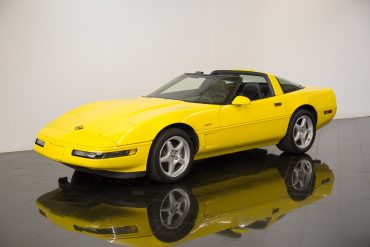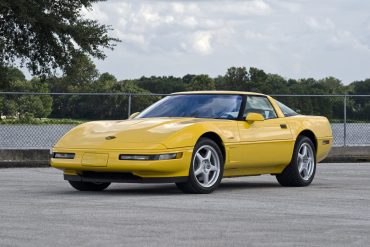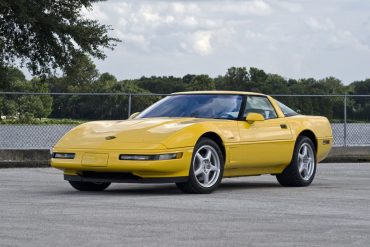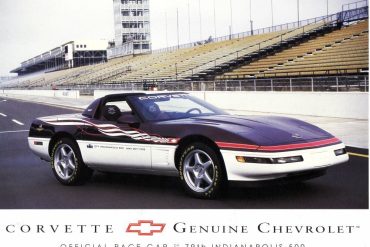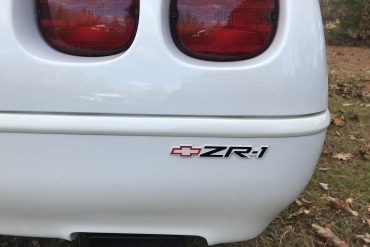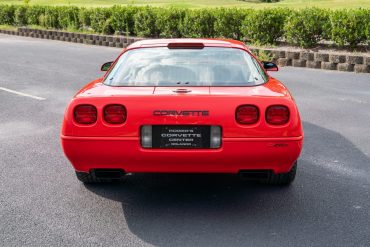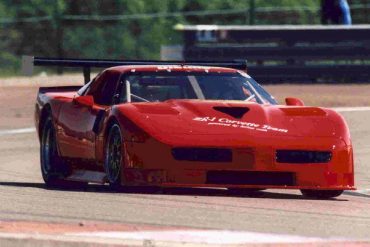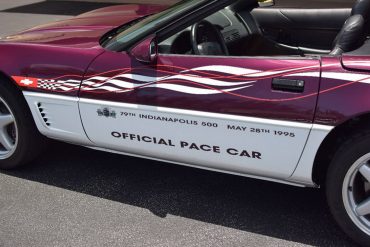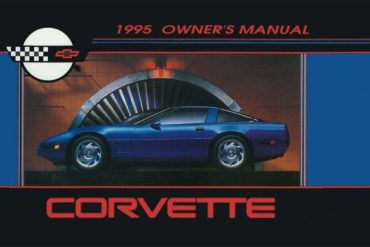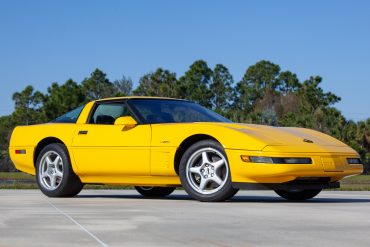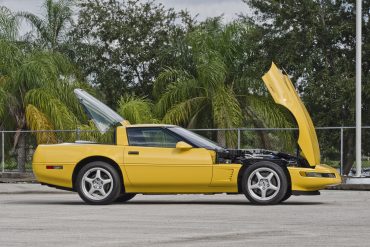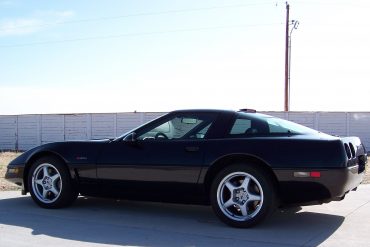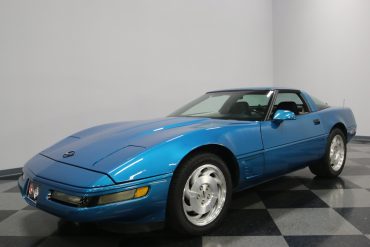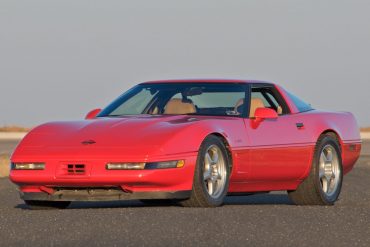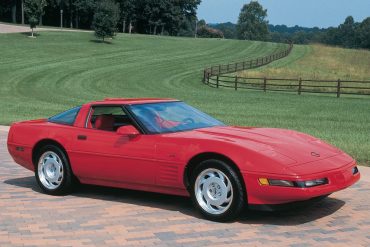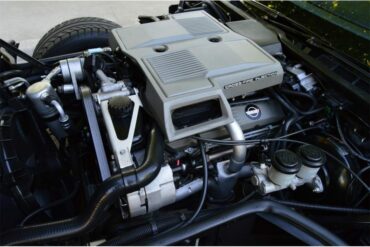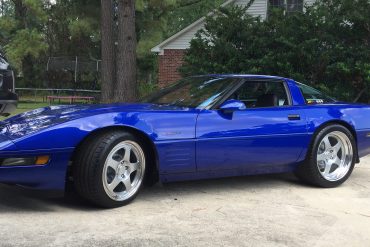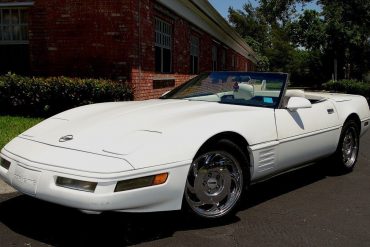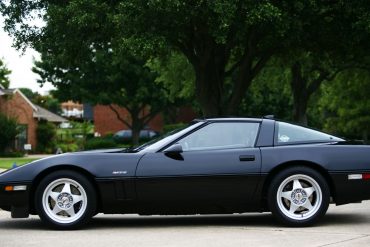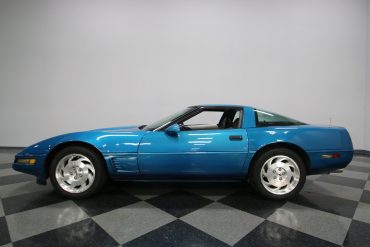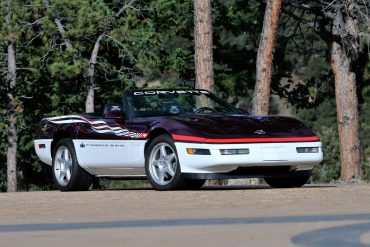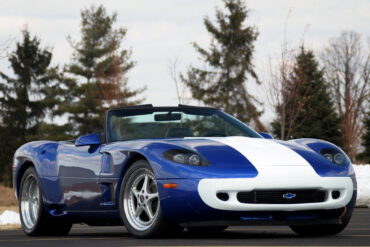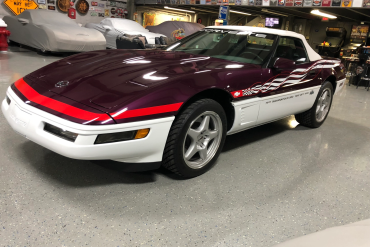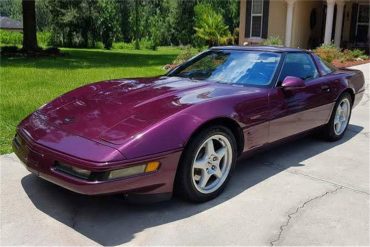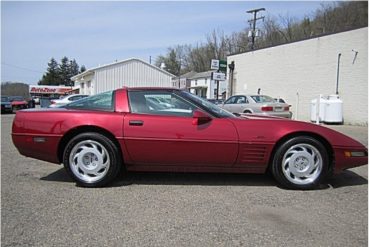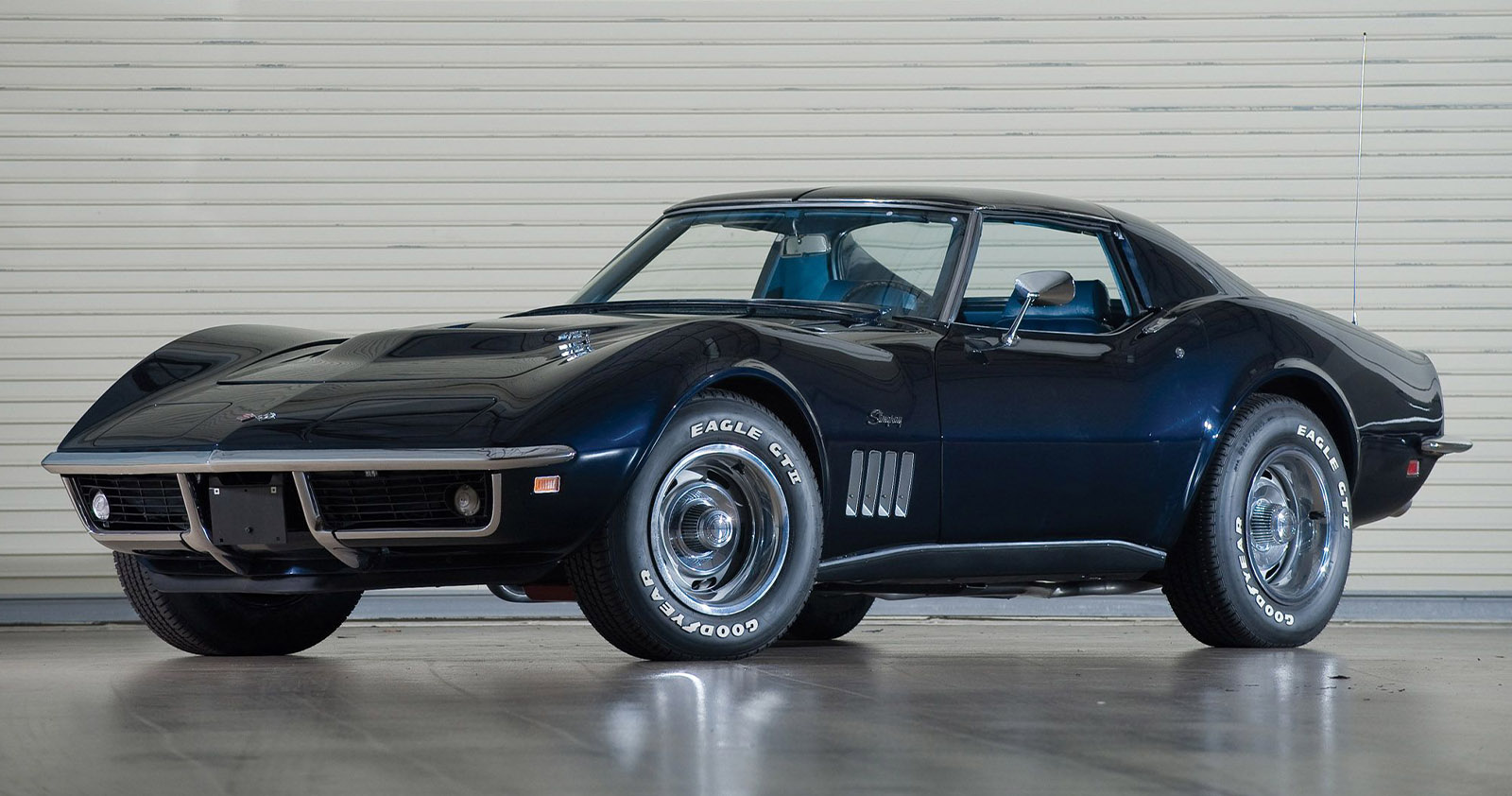After a yearlong hiatus leading to a non-existent 1983 production run, the completely redeveloped fourth-generation Corvette emerged onto the scene...
Chevrolet's introduction of the LT1 in 1992 as the base engine in the Corvette phased out the L98 based Callaway Twin Turbo. Previously, Callaway Corvettes made their increased power through positive manifold pressure; now they made it through increased displacement and finesse. Initially called the CL1 or CR1, they designated the chassis they were built upon. They were based on the pushrod LT1 cars (CL1) or the 32 valve DOHC LT5 ZR-1 cars (CR1).
1995 Corvette – The Ultimate Guide Even with eleven years already behind it, the C4 Corvette still managed to receive...
Browse 1995 C4 Corvette pictures, photos, and images. Explore and get inspired by hundreds of interior, exterior and action photos.
For all 1995 Corvettes, the Vehicle Identification Number was stamped on a plate on the inner vertical surface of the left windshield pillar visible through the windshield.
1995 Corvette Ads We have curated a cool list of all the 1995 Corvette advertisements, commercials and posters we could...
A tip whispered in our ears here at Corvsport told of a pristine condition, 900 original miles 1995 Corvette C4...
The following list of common issues is intended for individual reference only, and may not reflect the specific issues of every 1995 Corvette.
This car was created by Doug Rippie. His claim to fame was the Corvette Challenge Series. Rippie loved racing Corvettes in the US, but, his life-long dream was to take on the world-class marques at Le Mans. So, when Chevy introduced the C4 ZR1 the opportunity was opened up. Via his collaboration with MerCruiser and Lotus Engineering, all with Chevy’s blessing, the "Black Widow" program created special street and race versions of the LT5 engine. This engine made 525hp.
The actual Corvette Pace Car that served at the 79th running of the Indianapolis 500 was a near-stock LT1 Corvette Convertible, except for the mandatory safety features that were required by the Indianapolis Motor Speedway. The Official Pace Car cam equipped with strobe lights, a special roll-bar, five-point safety harnesses for the driver and passenger and an on-board fire suppression system. Chevrolet built just three of the actual pace cars.
This Owners Guide contains important information regarding the operation and maintenance of your 1995 Corvette. In order to obtain maximum enjoyment and usage from your car, we suggest that you familiarize yourself with the contents...
See the complete technical specifications and performance information for the 1995 Chevrolet Corvette, including engine specs, acceleration, & quarter mile.
The 1995 Corvette was maturing as both a performance platform and as an aesthetic knockout. Get all the options, pricing, and color data here.
The last C4 ZR-1 was built in 1995, resulting in a total number of 6,939 units being built during its six year production run. Total sales numbers decreased to 20,742 units
Looking for information on how to maintain your 1995 Corvette? We've curated resources to help you keep your Corvette in great shape for years to come!
1995 C4 Corvette RPO Codes, Options Codes & Order Guide If you are looking to decode your 1995 Corvette RPO’s...
Download this 1995 Corvette Dealers Sales Brochure for a quick look at the features of the car. Pulse-quickening, heart pounding, all-American legend. Technology by itself does not make a great sports car. It takes heart and soul. Welcome to the Corvette story, 1995 edition....
We have curated the ultimate collection of the 1995 Corvette Wallpapers and HD backgrounds for you to enjoy. Free to download
The C4 Corvette debuted to a frenzy of publicity and would ultimately enjoy a lengthy run, spanning 13 years of production. During this period, GM installed a number of memorable powerplants. Many of these engines proved to be quite innovative in design, even when saddled with newly-mandated emissions equipment of the era. The following is a comprehensive guide to powerplants of the C4 era.
Admiral Blue 1995 Chevrolet Corvette We found some examples of 1995 Corvette in the Admiral Blue color scheme. These real Admiral...
Arctic White 1995 Chevrolet Corvette We found some examples of 1995 Corvette in the Arctic White color scheme. These real Arctic...
Black 1995 Chevrolet Corvette We found some examples of 1995 Corvette in the Black color scheme. These real Black paint pictures of...
Bright Aqua 1995 Chevrolet Corvette We found some examples of 1995 Corvette in the Bright Aqua color scheme. These real Bright...
Competition Yellow 1995 Chevrolet Corvette We found some examples of 1995 Corvette in the Competition Yellow color scheme. These real Competition...
As Chevrolet continued to refine the fourth-generation Corvette, and as the model continued to evolve into a higher-performance variant of its former self, it...
The Corvette Guldstrand Nassau Roadster was a coachbuilt Corvette is based on the ZR-1 and was equipped with a 475...
The 1995 Corvette was offered in different colors, but what are your thoughts about this one in Competition Yellow?...
As Chevrolet continued to refine the fourth-generation Corvette, and as the model continued to evolve into a higher-performance variant of...
Dark Purple 1995 Chevrolet Corvette We found some examples of 1995 Corvette in the Dark Purple color scheme. These real Dark...
Dark Red 1995 Chevrolet Corvette We found some examples of 1995 Corvette in the Dark Red color scheme. These real Dark...


